The big picture: using wildflower strips for pest control
Start date
End date
Time
Venue
Enquiries
Registration deadline
The Monogram conference brings together students, scientists and plant breeders working on cereals and grasses. The conference includes invited plenary and keynote talks, the Rank Prize lecture, the Rank Prize early career researchers (ECR) excellence lecture, the Monogram Early Career Excellence Awards (MECEA) and selected talks from submitted abstracts, poster sessions, poster flash talks, a panel discussion with breeders, a session on “women in crop science” to encourage the representation of women in senior academic roles, and finally a Gala Dinner.
This conference is open to all researchers in academia and industry with an interest in cereals and grasses. Monogram will be a hybrid meeting for those who are unable to attend in person but would still like to participate. The deadline for registration is March 3rd 2024.
MECEA Awards
Nominations for the Monogram Early Career Excellence Awards (MECEA Awards) are invited from PhD students and early career post-doctoral scientists (up to 5 year’s post-PhD graduation). The MECEA awards seek to recognise outstanding young scientists and researchers in the field of small grain cereal and grass research in the UK. MECEA awards consider research contributions in basic and applied disciplines, as well as contributions of excellence to scientific outreach and promotion activities. The winners will receive a £300 cash prize and will have the opportunity to present their work at Monogram 2024. Eligibility criteria for MECEA awards and the application process can be found here. Application materials should be uploaded during registration for the conference. The deadline for applications is February 11th 2024.
ECR Bursaries
ECR bursaries are available to cover registration fees of 2 PhD students and 2 post-doctoral researchers (up to 5 year’s post-PhD graduation). The Monogram committee will select the best applications based on merit and demonstration of the need for the bursary to attend the conference and we will ensure balance in gender and diversity during the selection process. The application consists of a 2-page CV and 1-page describing your work, achievement and how this bursary would benefit your career development. Application materials should be uploaded during registration for the conference. The deadline for applications is February 11th 2024.
To register, submit an abstract (300 words maximum) and apply for the MECEA awards and ECR bursaries, please follow this link. For payment for the event, please click here.
The conference includes the following research topics:
Accommodation
Delegates should organise their own accommodation.
There is a range of accommodation nearby Rothamsted Research. We recommend Aubrey Park Hotel near Hemel Hempstead, Premier Inn and Travelodge in St Albans City Centre.
Travel
For information on travelling to our Harpenden site, click here. Free car parking is available. For delegates staying in St Albans, coaches will be organised from Rothamsted Research to St Albans St Peters Street on Monday evening and Tuesday evening, and from St Albans St Peters street to Rothamsted on Tuesday morning and Wednesday morning (please indicate when you register whether you want to use the free coach transfers). Trains are also available between St Albans City station and Harpenden station- Rothamsted is a 10-minute walk from the station.
Registration
For registration for the event, please click here.
Registration fees include access to the meeting, tea and coffee break refreshments, drinks reception (25th) and lunches (25th, 26th and 27th). Registration fee is £145 for student, £190 for non-student and £50 for online. Please note a refund is not possible.
Gala dinner (26th) is an additional fee of £55. The restaurant has a maximum capacity of 120 people, so places are limited.
Organisers
Christophe Lambing (Rothamsted Research)
Alison Lovegrove (Rothamsted Research)
Malcolm Hawkesford (Rothamsted Research)
Kim Hammond-Kosack (Rothamsted Research)
Enquiries or further information:
Please email christophe.lambing@rothamsted.ac.uk
Sponsored by...
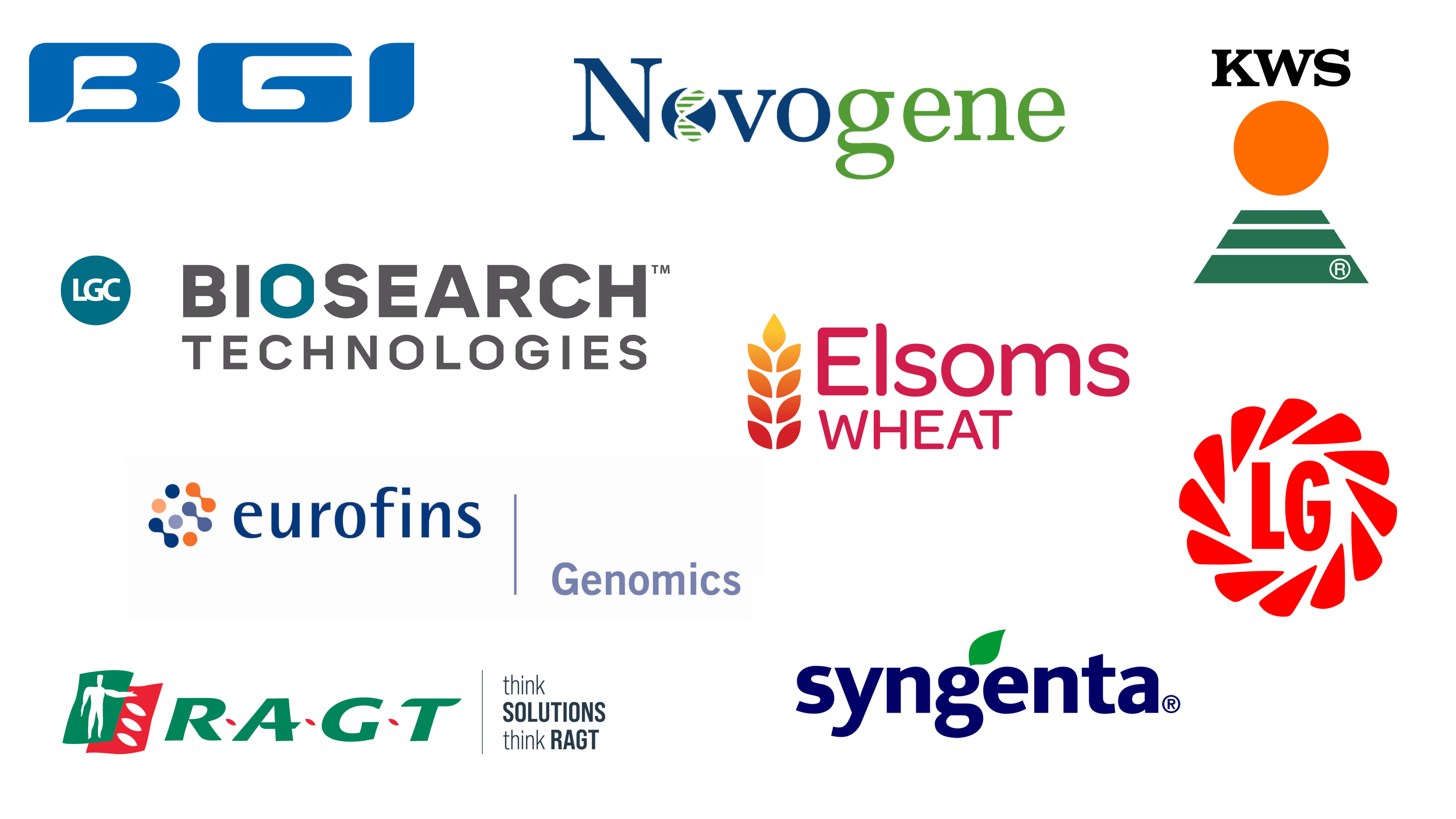
Day 1 - Monday 25th March
10:00-12:00 Arrival and registration
12:00-13:00 Lunch
13:00-14:30 Session I – Climate change. Keynote speaker: Laura Dixon (Rank Prize ECR excellence lecture)
14:30-15:00 Coffee break
15:00-16:30 Session II – Productivity. Keynote speaker: Erik Murchie
16:30-17:00 Selected Poster flash talks
17:00-19.00 Poster session and drinks reception - with free transport to the hotel for those staying in St. Albans
Day - Tuesday 26th March – posters will be removed by mid-day.
Free transport from the hotel to the conference centre for those staying in St. Albans
9.30-10.30 Plenary speaker: Jane Langdale
10:30-11:00 Coffee break + group session “Women in Crop Science” round table facilitated discussions
11.00-12.30 Session III – Quality. Keynote speaker: Stefania Masci (Rank lecture)
12:30-13:30 Lunch
13:30-14:30 Panel discussion
14:30-16:00 Session IV – Biotic interaction. Keynote speaker: Paul Nicholson.
16:00-16:30 Coffee break
16:30-18:00 Session V – The Below ground Environment. Keynote speaker: Tim Mauchline
18:00-21:00 Gala dinner - with free transport to the hotel for those staying in St. Albans
Day 3 - Wednesday 27th March
Free transport from the hotel to the conference centre for those staying in St. Albans
8:00-9:00 Arrival and refreshments- free transport to conference for those staying in St. Albans
9:00-10:30 Session VI – Advances in Genetic and Genomic Technologies. Keynote speaker: Anthony Hall
10:30-11:00 Coffee
11:00-12:00 MECEA winners talks
12:00-12:30 Announcement about Monogram 2025
12:30-13:30 Lunch
End of the conference
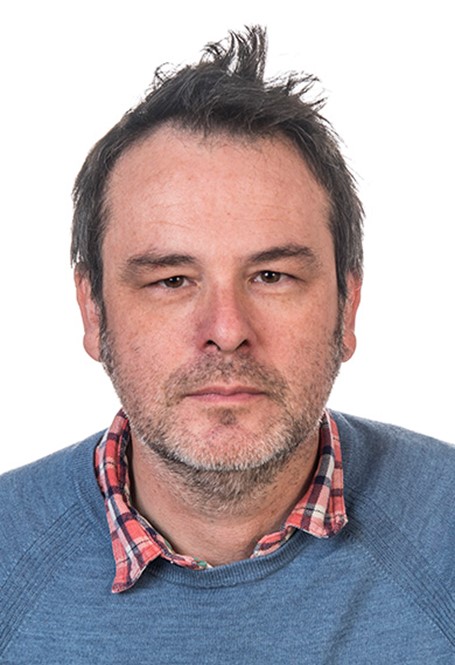 Professor Anthony Hall is the head of Plant Genomics at the Earlham Institute on the Norwich Research Park. After of Postdoc at the University of Warwick with Prof. Andrew Millar he set up his independent research group focusing on the circadian clock at the University of Liverpool in 2003. His plant genomics group started in 2009 and has focused on using wheat as a model for studying the evolution in complex genomes. In 2010 he was awarded a senior BBSRC research fellowship entitled “Developing Next Generation Genetic Tools for Wheat”. To date he has played a leading role in generating the first draft wheat genome (Brenchley et al, Nature 2012), in the 10 plus Wheat genome project (Walkowiak et al 2020) and the wheat epigenome (Gardiner et al. Genome Biology 2015). He currently leads the Earlham Institute's five-year strategic programme Decoding Biodiversity he is also a group leader in Delivering Sustainable Wheat. He also co-founded a ML/AI spin-out TraitSeq LTD.
Professor Anthony Hall is the head of Plant Genomics at the Earlham Institute on the Norwich Research Park. After of Postdoc at the University of Warwick with Prof. Andrew Millar he set up his independent research group focusing on the circadian clock at the University of Liverpool in 2003. His plant genomics group started in 2009 and has focused on using wheat as a model for studying the evolution in complex genomes. In 2010 he was awarded a senior BBSRC research fellowship entitled “Developing Next Generation Genetic Tools for Wheat”. To date he has played a leading role in generating the first draft wheat genome (Brenchley et al, Nature 2012), in the 10 plus Wheat genome project (Walkowiak et al 2020) and the wheat epigenome (Gardiner et al. Genome Biology 2015). He currently leads the Earlham Institute's five-year strategic programme Decoding Biodiversity he is also a group leader in Delivering Sustainable Wheat. He also co-founded a ML/AI spin-out TraitSeq LTD.
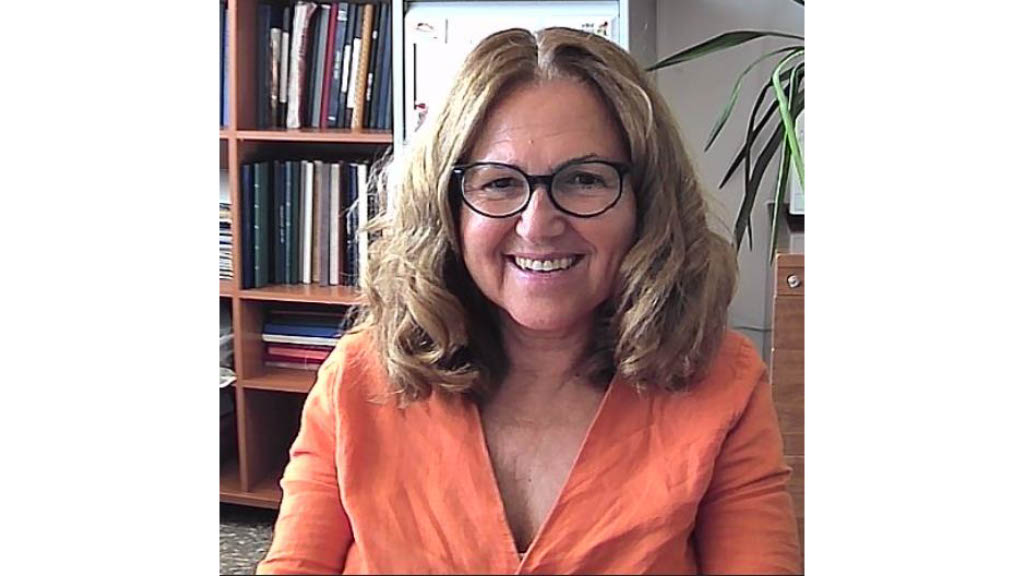 Stefania’s main research interests are in the genetic, molecular and biochemical basis of wheat quality. She uses both conventional and advanced breeding techniques (such as genetic modification, genome editing and the use of TILLING mutants) to develop novel wheat germplasm for improved nutrition, technological processing and enhanced yield. Recent work includes the development and characterisation of wheat lines with low asparagine content to reduce acrylamide -forming potential. Gene silencing to enhance micronutrient content in Durum wheat and use of CRISPR-Cas9 to reduce allergen proteins in Durum wheat.
Stefania’s main research interests are in the genetic, molecular and biochemical basis of wheat quality. She uses both conventional and advanced breeding techniques (such as genetic modification, genome editing and the use of TILLING mutants) to develop novel wheat germplasm for improved nutrition, technological processing and enhanced yield. Recent work includes the development and characterisation of wheat lines with low asparagine content to reduce acrylamide -forming potential. Gene silencing to enhance micronutrient content in Durum wheat and use of CRISPR-Cas9 to reduce allergen proteins in Durum wheat.
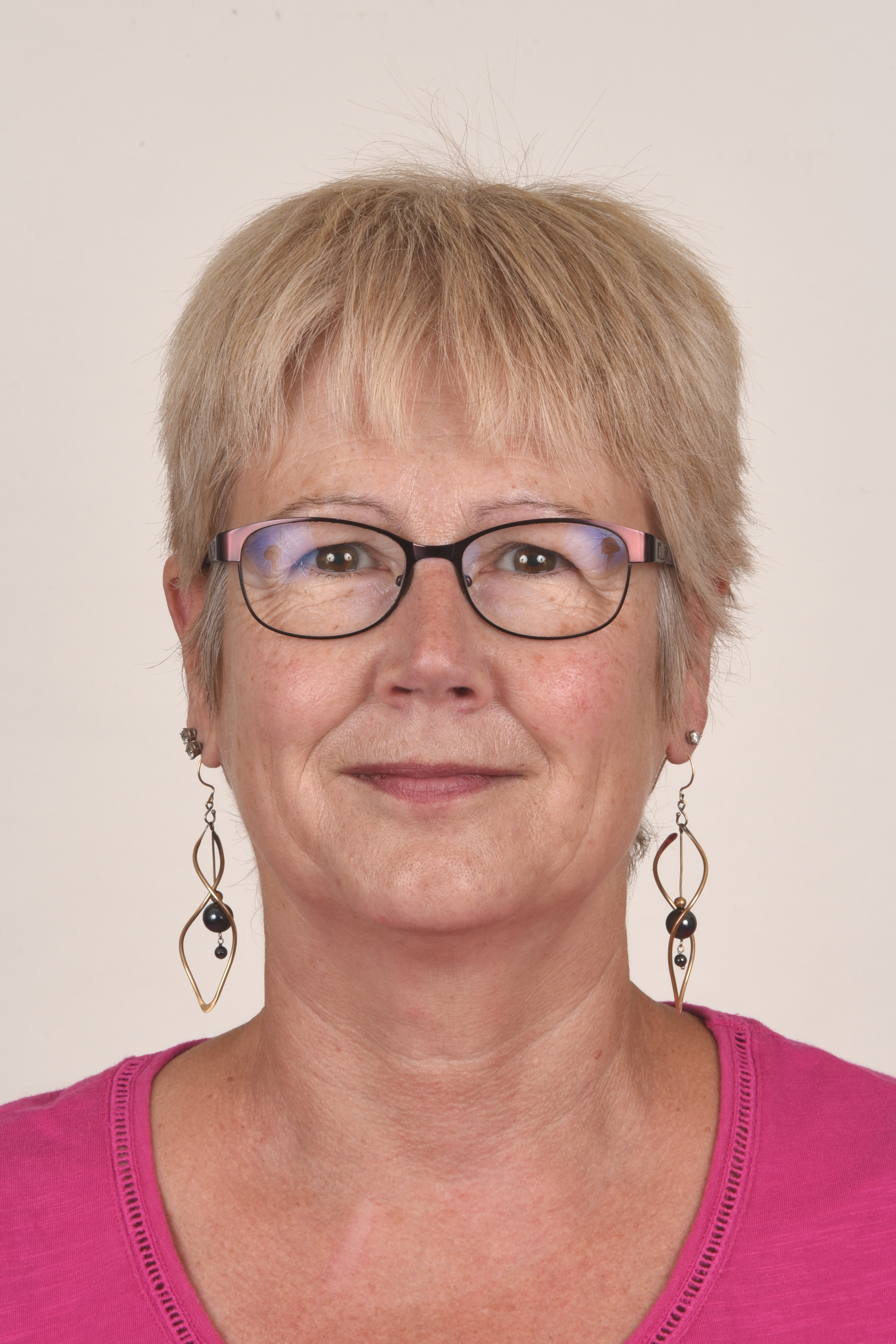 Jane Langdale is currently Professor of Plant Development in the Biology Department at the University of Oxford and Professorial Fellow at The Queen’s College.
Jane Langdale is currently Professor of Plant Development in the Biology Department at the University of Oxford and Professorial Fellow at The Queen’s College.
Jane’s research focusses on understanding the genetic mechanisms that underpin how leaves develop and how they evolved (www.langdalelab.com) and she is currently co-ordinator of the Bill & Melinda Gates Foundation funded ‘C4 Rice Project’.
She was elected a Member of EMBO in 2007, a Fellow of the Royal Society in 2015, an International Member of the US National Academy of Sciences in 2019 and a Corresponding Member of the Australian Academy of Sciences in 2020.
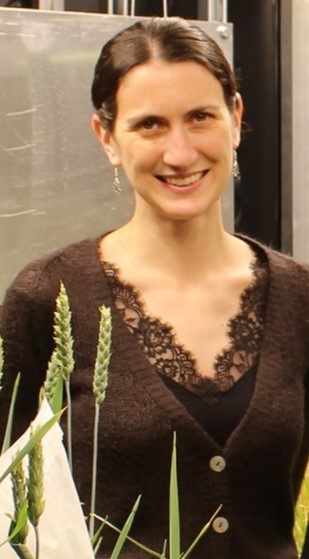 Dr Laura Dixon is an Associate Professor in Crop Genetics and Physiology and UKRI Future Leader Fellow at the University of Leeds, UK. She received her PhD from the University of Edinburgh (understanding plant circadian rhythms) and her Bachelor’s degree from the University of Cambridge (Natural Sciences). Her group works to understand how cereals respond to temperature and photoperiod signals. The group's work combines discovery science at the molecular and genetic level with translation into the field. Their work focuses on reproductive plant biology including the vegetative to floral transition, floret formation and flowering time regulation.
Dr Laura Dixon is an Associate Professor in Crop Genetics and Physiology and UKRI Future Leader Fellow at the University of Leeds, UK. She received her PhD from the University of Edinburgh (understanding plant circadian rhythms) and her Bachelor’s degree from the University of Cambridge (Natural Sciences). Her group works to understand how cereals respond to temperature and photoperiod signals. The group's work combines discovery science at the molecular and genetic level with translation into the field. Their work focuses on reproductive plant biology including the vegetative to floral transition, floret formation and flowering time regulation.
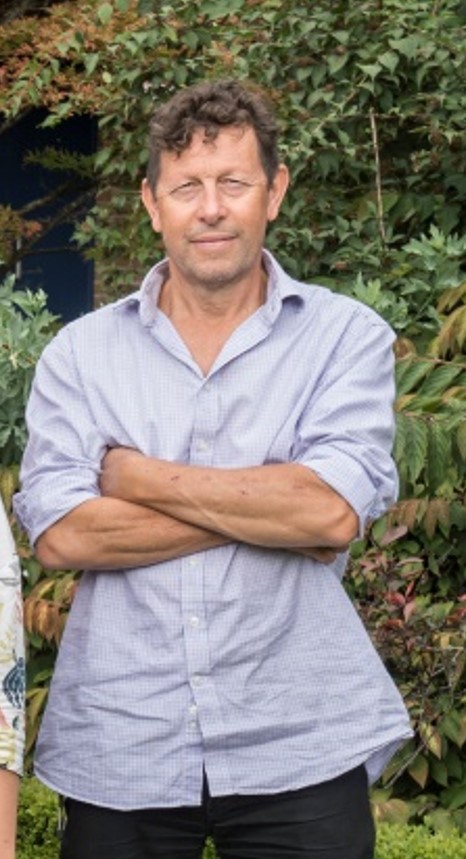 Paul Nicholson is a group leader in the Department of Crop Genetics at the John Innes Centre in Norwich. The focus of the Nicholson lab’s research is on investigating the genetic basis of resistance to a number of pathogens of wheat and barley.
Paul Nicholson is a group leader in the Department of Crop Genetics at the John Innes Centre in Norwich. The focus of the Nicholson lab’s research is on investigating the genetic basis of resistance to a number of pathogens of wheat and barley.
The main diseases are Fusarium head blight and wheat blast which affect the heads of cereals and eyespot that attacks the stem base. While all three diseases reduce yield, Fusarium head blight is of particular concern because the fungi produce toxins that can contaminate grain and pose a health risk to human and animal consumers. These diseases each require a different approach. While wheat blast and Fusarium head blight cause similar symptoms they differ markedly with respect to resistance. The former can be tackled by identifying conventional resistance genes while the latter is much more difficult to counter as such genes do not appear to play a major role in resistance to this disease. The lab’s studies reveal that, in order to reduce disease, it is essential to identify and eliminate so-called susceptibility factors present in the host that actually aid the fungus as it infects. There are very few sources of resistance to eyespot and the most potent resistance derives from a relative of wheat. They are attempting to identify the gene(s) responsible as well as identify new sources of resistance. All their research is intended to produce information and tools to assist plant breeders to develop resistant varieties in order to prevent yield losses and reduce contamination of grain with toxins.
 Prof. Erik Murchie holds a chair in Applied Plant Physiology at the University of Nottingham. His research focuses on metabolic and physiological responses to the environment with a particular passion for plants and crops under field conditions. Recent work in his research group has included nocturnal conductance in response to rising temperatures, photoprotection in cereal canopies and the exploration of diverse wheat and rice germplasm for dynamic photosynthesis and heat tolerance. Progress has been made in understanding the role of 3D canopy architecture in determining productivity.
Prof. Erik Murchie holds a chair in Applied Plant Physiology at the University of Nottingham. His research focuses on metabolic and physiological responses to the environment with a particular passion for plants and crops under field conditions. Recent work in his research group has included nocturnal conductance in response to rising temperatures, photoprotection in cereal canopies and the exploration of diverse wheat and rice germplasm for dynamic photosynthesis and heat tolerance. Progress has been made in understanding the role of 3D canopy architecture in determining productivity.
 Tim has spent his entire research career studying microbial interactions in the plant root environment. He is interested in the ecology of microbial communities in cropping systems, with the overall aim of understanding the function and potential of plant-associated microbes for nutrient cycling, plant stress tolerance and plant disease suppression. Recently, his research has focused on factors that shape the wheat root microbiome such as crop genotype, land management, fertilization regime as well as abiotic (e.g. drought, salt) and biotic factors. His ultimate goal is to maximize the contribution of microbes for the development of sustainable agricultural systems.
Tim has spent his entire research career studying microbial interactions in the plant root environment. He is interested in the ecology of microbial communities in cropping systems, with the overall aim of understanding the function and potential of plant-associated microbes for nutrient cycling, plant stress tolerance and plant disease suppression. Recently, his research has focused on factors that shape the wheat root microbiome such as crop genotype, land management, fertilization regime as well as abiotic (e.g. drought, salt) and biotic factors. His ultimate goal is to maximize the contribution of microbes for the development of sustainable agricultural systems.